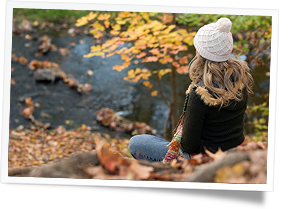The Loneliness Epidemic
Monday, December 5th, 2022
by Douglas L. Anderson, PsyD
A study done on loneliness, and done long before COVID was on our radar, provides some fascinating information about the experience of loneliness. Some studies are quite large. This one, done in 2018, was gigantic. 55,000 people worldwide responded to a survey about their experiences of loneliness.
The survey was structured in such a way that the results clearly demonstrated that people do not like to admit that they are lonely. Maybe you find yourself in that group. The results of the study revealed higher levels of shame in those who admitted to experiencing loneliness.
The US Surgeon General, Dr. Vivek Murthy, puts it this way: “People who feel lonely often are ashamed to admit it. They think it’s equivalent to admitting that they are not likable or that they’re socially insufficient in some way.”
Loneliness is not about being alone. Most of us like being alone sometimes. We call that solitude.
In contrast, a person can experience deep and painful loneliness even when with other people. Loneliness is the subjective experience of emptiness and of feeling disconnected from the world. Lonely people feel sad, left out, like they have no one to talk to, and misunderstood.
Loneliness is an unpleasant, unwelcome, and distressing experience. Lonely people feel disconnected from others and long to be connected. That is, of course, a fundamental aspect of our humanity. We are relationship seeking creatures. We want and need to be and feel connected to others.
We know that loneliness has negative effects on mental health. It can worsen depression, anxiety, and other mood disorders. It can contribute to earlier and more severe cognitive decline.
We also know it impacts physical health. Loneliness leads to higher rates of cardiovascular impairment, chronic pain, and fatigue.
Adolescents and young adults are particularly at risk. As loneliness has increased among this age group we have seen a growing incidence of depression, substance abuse, and suicide.
The answer to loneliness will always include human connection. Feeling connected is a fundamental human need. We now often hear the words, “I see you. I hear you.” Those words have emerged out of our awareness of loneliness. Human connection requires being seen and heard.
Who sees you and hears you? Who are you connected to? If you are feeling lonely and disconnected, then it might be time to discover ways to build your network of people that you feel connected to.
If that seems like a daunting task, then you might want to reach out for professional help. We have competent and caring therapists in all four of our locations - River Counseling Services in Platte, Sioux Falls Psychological Services, and Stronghold Counseling Services in Sioux Falls and in Yankton - who will meet you where you are, offering hope. That is our mission. You may schedule an appointment at the Platte office at 605-337-3444 or meet with one of our Sioux Falls or Yankton based therapists from your computer, smartphone, or in person at any of our clinics. To schedule an appointment, please call 605-334-2696.




